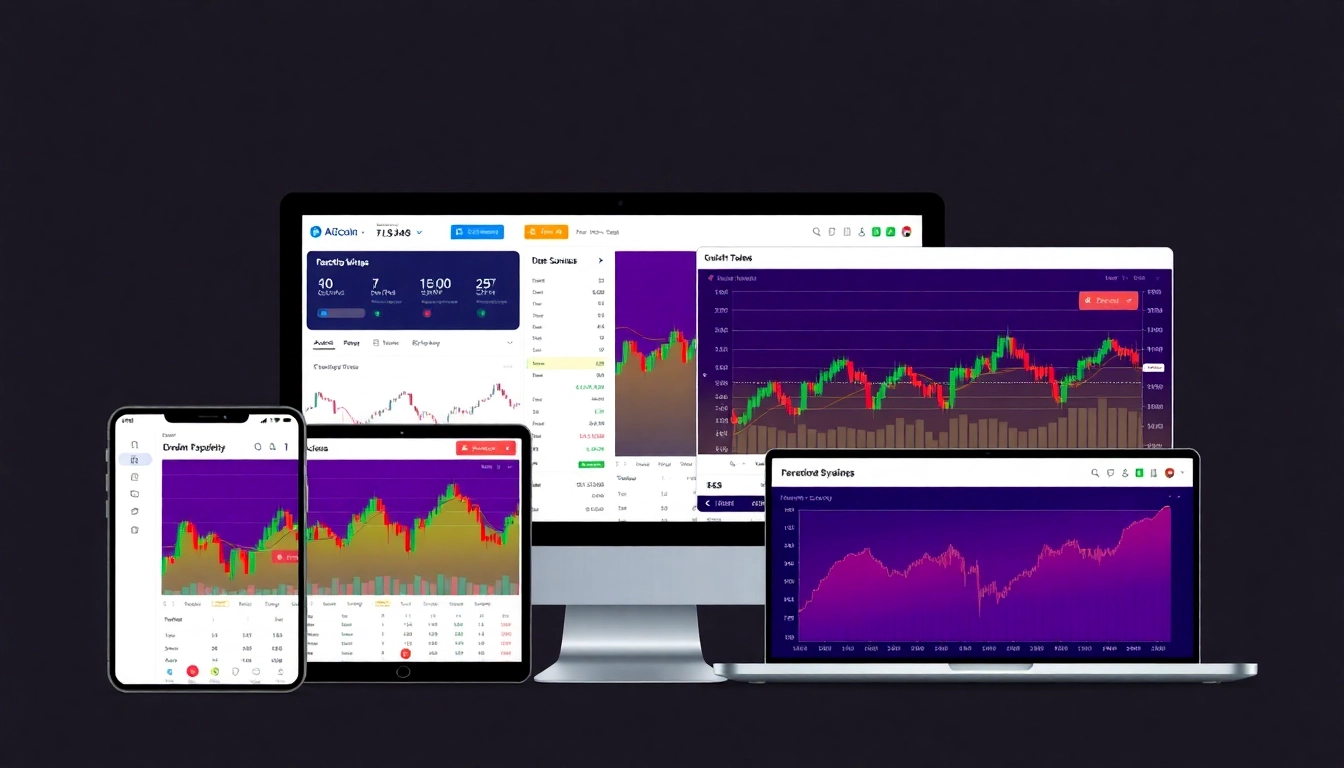Understanding the UK Share Trading Landscape
Overview of the UK Stock Market and Key Players
The UK stock market has historically been a vital hub for global investors, characterized by its robustness, liquidity, and diverse range of listed companies. The primary exchange, the London Stock Exchange (LSE), hosts thousands of companies ranging from global conglomerates to innovative startups. As of 2023, the LSE remains one of the world’s largest stock exchanges, providing a platform for both institutional and retail investors to participate in equity trading.
Notable key players include large-cap firms like Shell, HSBC, and Unilever, which dominate the market capitalization charts. Additionally, the FTSE 100 index serves as a benchmark for the overall health of the UK economy, reflecting the performance of the top 100 companies listed on the exchange. Besides the LSE, other significant entities include AIM, the market dedicated to smaller, growth-oriented companies, offering diverse opportunities for investors seeking higher-risk investments.
Understanding the operational structure of the UK stock market is pivotal for traders and investors. It operates primarily during weekdays from 8:00 am to 4:30 pm, with trading hours synchronized with European and North American markets. The market’s liquidity, transparency, and regulation foster an environment conducive to both active trading and long-term investment strategies.
Regulatory Environment and Its Impact on Trading
The UK’s share trading landscape is governed by a comprehensive regulatory framework designed to ensure market integrity, transparency, and investor protection. The Financial Conduct Authority (FCA) oversees the rules and regulations that brokers, traders, and listed companies must adhere to. These regulations mandate detailed disclosures, fair trading practices, and safeguard mechanisms against market manipulation or insider trading.
Regulatory compliance affects trading in several ways. For instance, the implementation of MiFID II (Markets in Financial Instruments Directive) has increased transparency requirements, mandated stricter reporting, and improved investor rights. Furthermore, the UK’s adherence to international standards ensures that participants can trade confidently within a secure environment.
Regulatory changes can influence trading strategies significantly. For example, changes in taxes, disclosure obligations, or new trading restrictions directly impact costs, timing, and risk management practices. Successful traders keep abreast of these developments via official channels and reputable news sources, allowing them to adapt swiftly and maintain compliance.
Current Trends and Future Outlook for Share Trading UK
The UK share trading market is experiencing evolving trends driven by technological advancements, regulatory adjustments, and macroeconomic factors. One notable trend is the surge in online trading platforms, offering investors unprecedented ease of access, real-time data, and low transaction costs. Platforms like Share Trading UK have democratized access, enabling retail traders to participate actively in the market.
Innovations such as fractional shares, commission-free trading, and algorithmic investing are reshaping the landscape, appealing especially to younger and more tech-savvy demographics. Additionally, increased interest in ESG (Environmental, Social, Governance) investing influences stock selection and trading strategies.
Looking ahead, the future appears promising, with continued integration of artificial intelligence and machine learning providing traders with sophisticated analytical tools. The potential for market expansion into more sustainable investment options and the adoption of blockchain technology could further enhance transparency and efficiency.
However, challenges such as geopolitical uncertainties, regulatory changes post-Brexit, and economic volatility remain prominent. Investors and traders should focus on building resilient strategies that can adapt to dynamic conditions, emphasizing diversification and risk management.
Getting Started with Share Trading in the UK
Choosing the Right Trading Platforms and Tools
Selecting an optimal trading platform forms the foundation for successful share trading. Factors to consider include usability, fees, available features, and access to real-time data. Top platforms like Trading 212, IWeb Share Dealing, and Interactive Brokers UK offer tailored solutions for different trading styles—from beginners to seasoned professionals.
For newcomers, platforms with intuitive interfaces, educational resources, and demo accounts are crucial. Conversely, advanced traders might prioritize low commissions, extensive analytical tools, and customizable interfaces. Many platforms also integrate advanced charting, news feeds, and automated trading options, all of which facilitate more informed decision-making.
Account Setup, Fees, and Compliance Requirements
Establishing a share trading account is straightforward but requires attention to regulatory and compliance procedures. Typically, this involves identity verification, residency checks, and understanding the account types—such as cash accounts, ISAs, or SIPP (Self-Invested Personal Pension) accounts.
Fees vary depending on the platform and account type, including trading commissions, account maintenance fees, spread costs, and withdrawal charges. Many UK brokers now offer zero-commission trading on certain share deals, making entry more accessible. It is vital to review detailed fee schedules and compare them to ensure cost-efficiency.
Compliance standards demand adherence to anti-money laundering policies and purchaser due diligence. Traders must keep proper documentation and regularly review their account settings to ensure continued compliance and security.
Basic Strategies for Beginners in UK Share Trading
For those embarking on their trading journey, mastering basic strategies is essential. A common approach is the buy-and-hold strategy, aiming for long-term growth by selecting fundamentally strong companies. Alternatively, beginners can explore dividend investing for steady income streams.
Another effective method is dollar-cost averaging—investing fixed amounts at regular intervals regardless of market fluctuations—which reduces the impact of volatility and mitigates timing risks. It’s also important to set clear investment goals, establish risk tolerance levels, and employ stop-loss orders to limit potential losses.
Education plays a critical role. Utilizing resources from reputable sources, participating in webinars, and practicing with demo accounts build confidence and competence before committing significant capital. Staying updated with market news and macroeconomic indicators further enhances decision-making.
Advanced Techniques and Investment Strategies
Technical Analysis and Charting for Share Trading UK
Technical analysis involves studying price charts and volume data to forecast future market movements. Key tools include trend lines, moving averages, RSI (Relative Strength Index), and MACD (Moving Average Convergence Divergence). Traders analyze patterns such as head and shoulders, double tops/bottoms, and candlestick formations to identify entry and exit points.
Mastering these techniques requires practice and disciplined chart interpretation. Many trading platforms provide integrated charting tools, enabling real-time analysis. Utilizing historical data to backtest strategies can also enhance skill development and confidence in executing trades based on technical signals.
Fundamental Analysis and Stock Selection
Fundamental analysis involves evaluating a company’s financial health through its income statement, balance sheet, and cash flow statement. Key metrics such as P/E ratio, debt-to-equity, ROE, and earnings growth help traders identify undervalued or overvalued stocks.
In the UK context, investors should also consider macroeconomic factors like interest rates, inflation, Brexit implications, and sector-specific trends. Corporate news, management quality, and competitive positioning are crucial qualitative elements that influence stock performance.
Combining fundamental insights with technical signals can optimize timing and enhance decision-making, especially in volatile markets.
Managing Risks and Building a Diversified Portfolio
Risk management is the cornerstone of sustainable trading. Diversification across sectors, asset classes, and geographic regions reduces portfolio volatility and mitigates adverse effects from individual stock declines. Setting appropriate position sizes and stop-loss levels also prevent overexposure to single trades.
Employing hedging strategies, such as options or inverse ETFs, can protect gains during downturns. Regular portfolio reviews, adjusting allocations based on market conditions, and maintaining cash reserves ensure flexibility and resilience.
Successful traders analyze performance metrics periodically, refining strategies based on historical results and current market dynamics.
Optimizing Your Share Trading Experience
Utilizing Market Data and Real-Time Alerts
Access to accurate, real-time market data is vital. Many advanced platforms offer customizable alerts for price movements, news releases, or technical signals. These alerts enable traders to act promptly, capitalize on opportunities, and manage risks effectively.
Integrating news feeds with trading platforms ensures timely information, aiding in swift decision-making. Automated alerts can be set based on specific thresholds, such as price targets or volatility levels, providing a proactive trading approach.
Tax Implications and Efficient Investment Planning
Understanding tax obligations in UK share trading is crucial for net gains optimization. Capital gains tax applies to profits exceeding annual exemptions, and dividend income is also subject to taxation, depending on the investor’s tax band.
Utilizing tax-efficient accounts such as ISAs and pensions can shield gains from tax, maximize compounding potential, and improve overall returns. Strategic planning involves timing disposals, harvesting losses to offset gains, and staying compliant with HMRC regulations.
Consulting with financial advisors or tax specialists is advisable for tailored tax strategies aligned with individual financial goals.
Common Pitfalls and How to Avoid Them in UK Share Trading
Pitfalls such as overtrading, insufficient research, chasing losses, or ignoring costs can erode gains and increase risks. Traders should develop comprehensive trading plans, adhere to disciplined routines, and avoid emotional decision-making.
Maintaining realistic expectations, continuously educating oneself, and reviewing trading logs foster better habits. Using risk controls like stop-loss orders and diversifying holdings further mitigate downside risks.
Case Studies and Market Insights
Successful UK Share Trading Examples and Lessons Learned
One illustrative case involved a trader who capitalized on the post-Brexit market volatility by employing a combination of technical and fundamental analysis, carefully selecting undervalued export-focused stocks. By maintaining discipline and employing stop-loss orders, the trader achieved consistent gains and minimized losses amidst market turbulence.
Key lessons from such successes include the importance of research, risk management, and patience—traits that distinguish novice traders from seasoned investors.
Latest Market News and Impact on Share Trading UK
Recent news, such as the UK’s interest rate decisions, geopolitical developments, and sector-specific reforms, significantly influence market sentiment. Staying informed through reliable news outlets and official reports helps traders anticipate market shifts and adjust strategies accordingly.
Expert Tips for Staying Ahead in UK Stock Markets
Experts emphasize continuous education, disciplined trading routines, and leveraging analytics tools. Diversification, adherence to well-defined strategies, and emotional resilience are paramount. Building a network with other traders and participating in forums can also provide insights and support decision-making.



